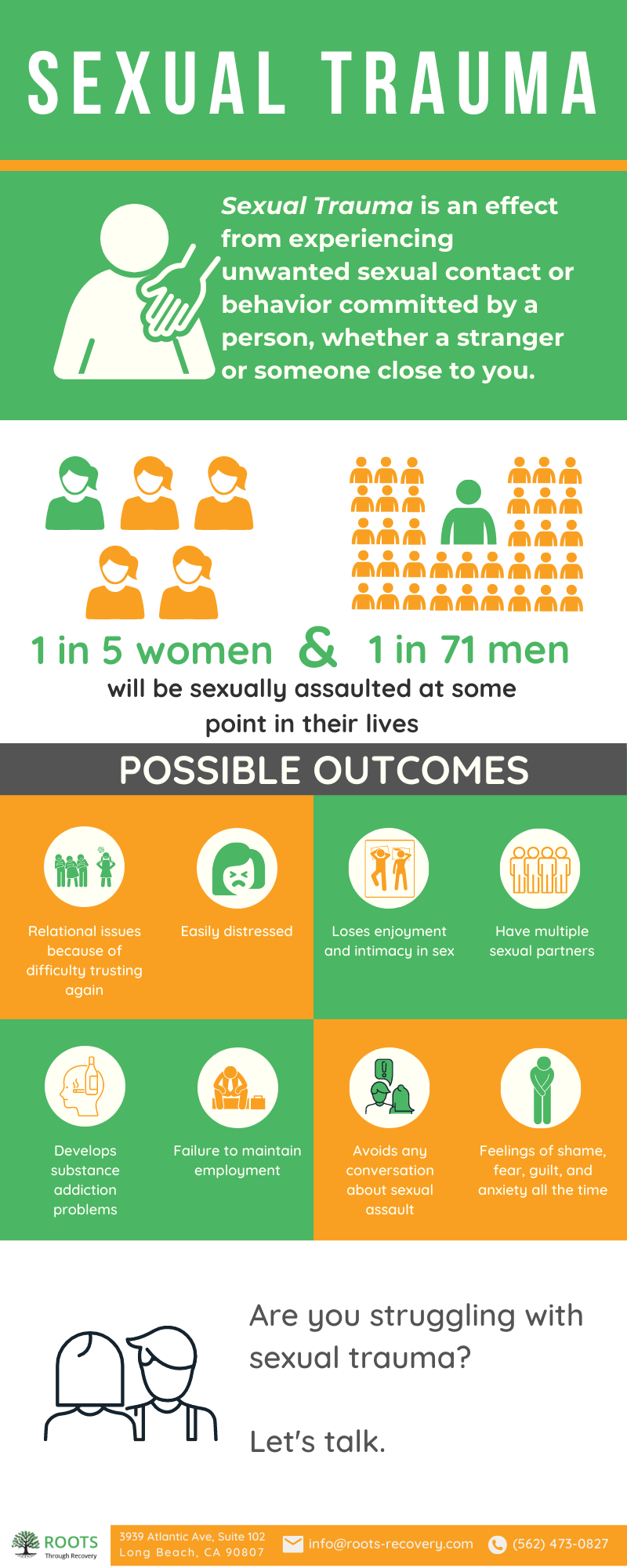
Sexual Trauma
Sexual trauma is unfortunately a common issue in our society. It’s devastating to have to go through the trauma of being sexually assaulted, and the lasting effects can lead to developing trust issues, fear of sexual contact, and feeling unsafe wherever you go. There may be nights when you couldn’t sleep as you replayed the experience in your head, leaving you anxious, fearful and angry. Others may even struggle with other mental health issues, such as Post Traumatic Stress Disorder or suicidal thoughts as a result of the pain caused by the traumatic experience. Regardless of how you are coping with sexual trauma, it’s important to know that what you’re experiencing is valid and normal. However, you’re not meant to stay in the place of shame and helplessness forever, and certainly not alone.
Recovering may take a long time, and it may even be a painful process. But it’s nothing compared to the fulfillment of being healed from the trauma, regaining self-control, and a positive self-image. Healing from sexual trauma, both physically and psychologically, will definitely help you move forward with your life. Additionally, we offer a free assessment test that one can take.
What is it?
A sexual trauma is an effect of suffering from an unwanted sexual contact or behavior committed by a person–a stranger or someone close to you. About 1 in 5 women in the U.S. are assaulted or harassed sexually. Although more commonly experienced by women, 1 in 20 boys also suffer from such abuse and trauma. Here are the following possible effects of this trauma:
- Relational issues because of difficulty trusting again
- Easily distressed
- Loses enjoyment and intimacy in sex
- Have multiple sexual partners
- Develops substance addiction problems
- Failure to maintain employment
- Avoids intimate conversations or any conversation about sexual assault
- Feelings of shame, fear, guilt, and anxiety all the time
What are the signs and symptoms?
Arthritis
Chronic pelvic pain
Digestive problems
Intense premenstrual symptoms
Non-epileptic seizures
Nightmares, uninvited thoughts and memories
Always having their guard up
Severe trust issues
FAQs
Q: What is sexual abuse?
A: Sexual abuse is any sexual activity committed without consent such as unconsented sexual touching or groping, rape, among others. Always be reminded that it’s not the victim’s fault that they were assaulted.
Q: What should I do when someone tells me about their sexual trauma?
A: When someone tells you about their sexual trauma, it’s important to reassure them of your love and concern despite their traumatic experience. It probably took them a lot of courage to open up so allow them to share their stories at their own pace. Listen genuinely to them and lovingly encourage them to seek professional help as well.
Q: Why is it important that I get help?
A: It is important that you get help because this will allow you to move forward with your life. Practicing a few helpful habits and techniques will definitely help you effectively manage your lifestyle, including your daily and long term goals.
Take the First Step Now
If you need to find a place that feels comfortable and supportive, let Roots Through Recovery’s experienced clinicians and case management team work with you to help determine your next steps. We want you to have choices that will give you and your loved ones the best outcomes.



